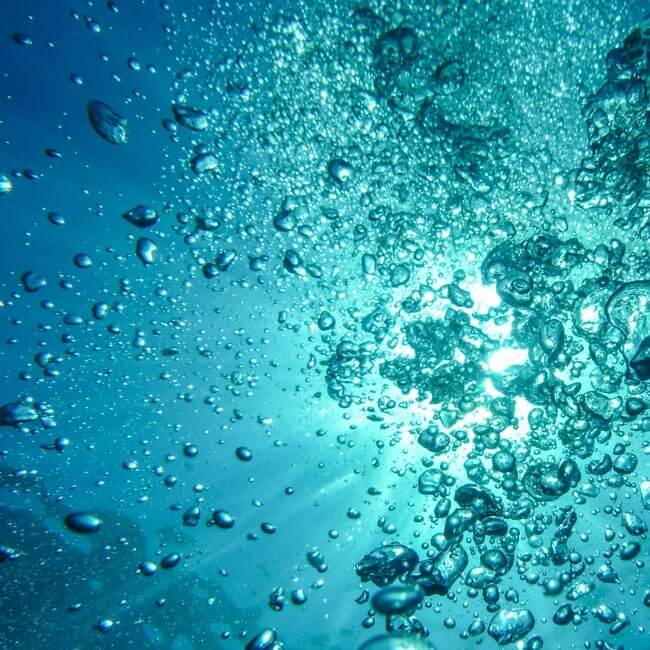Brazil approves regulation for carbon credits
Brazil's lower house has approved a bill regulating the country's carbon market.
The proposal, which went to President Luiz Inácio Lula da Silva for promulgation, stipulates a regulated market and a voluntary market for securities representing the emission or removal of greenhouse gases. Companies that pollute the most will have to meet a target and can use these bonds to offset emissions.
Experts have praised the bill's final version but also criticized the time it will take for carbon credits to begin trading and the exclusion of agribusiness from the regulated market.
The regulated securities market will be implemented gradually over six years. Dubbed the Brazilian Greenhouse Gas Emissions Trading System (SBCE), this market will allow trading in emission shares (CBE) and certificates of verified emission reduction or removal (CRVE).
Agriculture will be excluded, and indirect emissions of carbon dioxide and other gases related to global warming resulting from the production of agricultural inputs such as fertilizers or raw materials will not be taken into account when imposing obligations to contain emissions.
The decision aligns with regulated carbon credit markets worldwide, given the sector's importance for food security and the uncertainties in estimating emissions.
The bill states that each share or CRVE will represent 1tCO2e (ton of carbon dioxide equivalent). In the regulated market, at the end of commitment periods, companies with regulated activities will have to determine net emissions, and both will be canceled, as a reduction or removal certificate allows an emission share to be canceled.
The idea is that, after a period of adaptation, economic sectors that find it most difficult to reduce emissions through technological processes will buy shares that allow them to pollute and certificates that verify they have captured any emissions, leading to net zero.
The purchase and sale, when carried out on the financial and capital markets, will be subject to regulation by securities and exchange commission CVM, but there may be private placement of these assets (voluntary market).
The text prohibits the taxation of greenhouse gas emissions from activities, facilities and sources included in the SBCE, which will be regulated exclusively by the government.
Activities that emit more than 10,000tCO2e per year will have some form of control but with different obligations. Those with emissions above this level and up to 25,000tCO2e will have to submit an emissions monitoring plan to the SBCE management body, send an annual report on gas emissions and removals and meet other obligations set out in a decree or specific act of this management body.
Those carrying out activities with emissions of more than 25,000tCO2e per year, in addition to these obligations, will have to send the management body an annual report on the periodic reconciliation of obligations (emissions equal to emissions).
Sanitation
As for the sanitation sector, the text exempts companies that treat and dispose of solid waste and liquid effluents from complying with the limits when they can prove that they have adopted systems and technologies to neutralize such emissions.
Stages
The regulated market will be implemented in five phases. Regulations will be issued in the first phase, which will last 12 months and can be extended by another 12. In the next phase, regulated activity operators will have one year to implement measuring instruments to report emissions.
In phase three, which lasts two years, these operators will only have to submit a monitoring plan and a report on greenhouse gas emissions and removals to the system's management body.
In phase four, the first national allocation plan will come into effect, with free distribution of emission shares (CEB) and implementation of the asset market (stock exchange trading of emission quotas and gas removal certificates).
The last phase will result in the full implementation of the SBCE.
Taxation
The taxation of gains from the trading of securities or even carbon credits will follow current income tax legislation for each taxpayer and should be classified as net gains if trading takes place on stock, commodities and futures exchanges and organized over-the-counter markets. In all other cases, capital gains will be taxed.
Legal reserves
The restoration, maintenance and conservation of permanent preservation areas, legal reserves or restricted use areas and conservation units may generate carbon credits under the terms of regulations.
Insurance companies
Insurers, open supplementary pension funds, capitalization companies and local reinsurers will also have to buy a minimum of 1% of environmental assets per year to make up their technical reserves and provisions.
Expert views
Felipe Bittencourt, CEO of consultancy WayCarbon, said it will still take a long time for carbon credits to trade at scale.
“The deadlines are too long for the phases, especially the two years for emitting companies to report emissions to the government,” he told BNamericas.
Bittencourt criticized the exclusion of agribusiness, given its high carbon sequestration potential. “This should be a lighter law and then the sectors can enter or not [the regulated market] by decree.”
On the other hand, the consultant considered the establishment of commitments for insurers, capitalization companies and reinsurers to be positive.
“It's very good for the carbon market because it brings security and liquidity, regardless of the industry's goals, so there will always be someone buying a significant volume, which will make the market more dynamic.”
According to Lúcia Aragão, a lawyer at Vieira Rezende, the final bill was greatly improved thanks to changes made in the senate. She highlighted points such as making it possible to include REDD+ (reducing emissions from deforestation and degradation) projects, which are prevalent in the country, and the possibility of developing carbon projects in indigenous areas and territories of traditional communities by their inhabitants.
Another positive point is the interoperability in the text, allowing integration between the voluntary and regulated markets, as well as the possibility of integration with international markets.
“This measure enables flexibility and the global reach of emissions mitigation policies in accordance with the provisions of the Paris Agreement,” Aragão told BNamericas.
She highlighted that the bill classifies the assets that make up the SBCE and carbon credits as securities, strengthening the market and increasing its appeal to investments needed to transition to a low-carbon economy.
Aragão highlighted problematic points such as the delay in approving the law, which creates challenges in adapting to the global market, and the exclusion of agribusiness. In addition, there are gaps that depend on complementary regulations, especially with regard to the governance of the SBCE.
Another concern is how the integration between national and international systems, such as those with certifiers or registration systems, will take place.
“It’s essential that the national system is adaptable, transparent and aligned with global standards in order to guarantee the credibility and competitiveness of Brazilian credits,” she said.
Subscribe to the leading business intelligence platform in Latin America with different tools for Providers, Contractors, Operators, Government, Legal, Financial and Insurance industries.
News in: Water & Waste (Brazil)

Building Brazil's future: How BNDES is paving the way for stable long-term investment
Nelson Barbosa, director of planning and institutional relations at BNDES and a former finance minister, speaks with BNamericas about the developme...

Minas Gerais water utility plans to invest US$2.8bn through 2029
In 2025, the Brazilian water company is planning to invest 2.54bn reais compared with 2bn reais this year.
Subscribe to Latin America’s most trusted business intelligence platform.
Other projects in: Water & Waste (Brazil)
Get critical information about thousands of Water & Waste projects in Latin America: what stages they're in, capex, related companies, contacts and more.
- Project: Flood Control in Jardim Maravilha
- Current stage:

- Updated:
6 months ago
- Project: Macrodrainage Works in the Municipality of Juiz de Fora/MG
- Current stage:

- Updated:
6 months ago
- Project: Renovation of the Sewage Treatment Plant - Ete
- Current stage:

- Updated:
2 months ago
- Project: Get Sumare/sp
- Current stage:

- Updated:
7 months ago
- Project: Renovation and Adaptation of Water Supply Networks in the Measurement and Control Districts of the Jardim Sofia and Bucarein Neighborhoods
- Current stage:

- Updated:
7 months ago
- Project: Construction of a Reservoir Called R2, In Accordance with the Macrodrainage Plan of the City of São João Da Boa Vista/SP.
- Current stage:

- Updated:
7 months ago
- Project: Flood Control in Realengo
- Current stage:

- Updated:
7 months ago
- Project: Execution of Storm Drainage Works in the Salgado Basin, Including Flood Damping Reservoir and Drainage Devices.
- Current stage:

- Updated:
7 months ago
- Project: Expansion of the water supply system in the municipality of Juruena-MT
- Current stage:

- Updated:
7 months ago
- Project: Construction of a dam in the municipality of Alcantil - Pb
- Current stage:

- Updated:
7 months ago
Other companies in: Water & Waste (Brazil)
Get critical information about thousands of Water & Waste companies in Latin America: their projects, contacts, shareholders, related news and more.
- Company: Pátria Investimentos Ltda. (Pátria Investimentos)
-
Pátria Investimentos Ltda., formerly known as Patrimônio Planejamento Financeiro, is a Brazilian investment holding created in 1988, which works with private capital, real estat...
- Company: Goetze Lobato Engenharia S.A. (GEL)
- Company: KL Engenharia S.A. (KL Engenharia)
-
The description contained in this profile is taken directly from an official source and has not been edited or modified by BNamericas researchers, but may have been machine tran...
- Company: Consórcio GIDP Dom José
- Company: Mozer Engenharia Ltda.
- Company: Companhia de Saneamento de Minas Gerais (Copasa MG)
-
Brazilian utility Copasa provides water and sewerage services in Minas Gerais state. Its water distribution network covers over 48,000km, while its sewerage collection network c...
- Company: Mascarenhas Barbosa Roscoe S.A. Construções
-
The description contained in this profile was taken directly from an official source and has not been edited or modified by BNamericas researchers, but may have been automatical...
- Company: Fast Indústria e Comércio Ltda. (Fast)
-
The description contained in this profile was taken directly from an official source and has not been edited or modified by BNamericas researchers, but may have been machine tra...
- Company: Pinheiro Neto Advogados
-
The description contained in this profile was taken directly from an official source and has not been edited or modified by BNamericas researchers, but may have been automatical...





